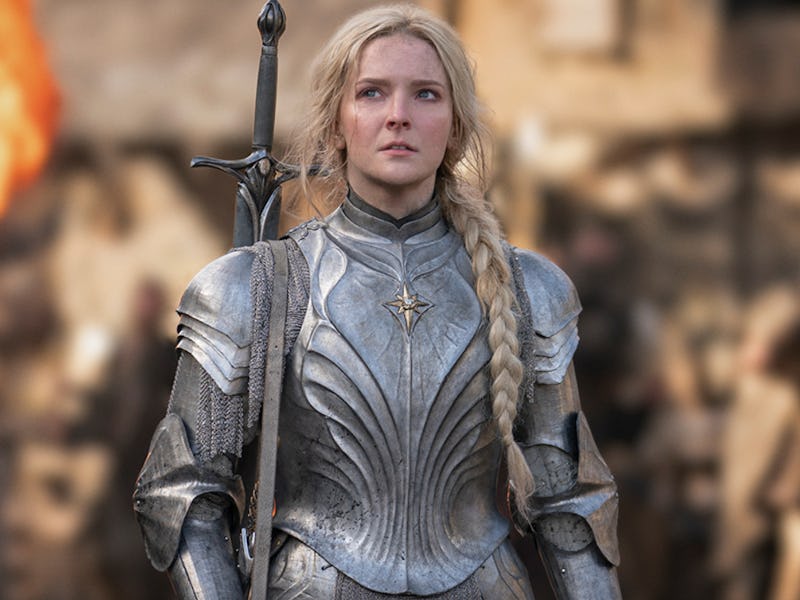The Rings of Power is already making one controversial change to Tolkien canon
In The Rings of Power, everything really will be happening all at once.

Amazon is finally starting to confirm some major details about The Lord of the Rings: The Rings of Power. After years of keeping the show’s character and plot details tightly under wraps, Amazon is now slowly unveiling more about the highly anticipated fantasy show — from the release of its epic first image to its title reveal and the rollout of some frustratingly vague character posters.
A new Vanity Fair feature about the show has given Lord of the Rings fans more official info about The Rings of Power than they’ve previously gotten up to this point. That includes one creative decision the show’s creators are making with The Rings of Power, which is already proving to be controversial amongst J.R.R. Tolkien fans.
Compressing the Timeline — While speaking with Vanity Fair about The Rings of Power, showrunners Patrick McKay and J.D. Payne confirmed that the series will significantly compress the timeline of the Second Age of Middle-earth, the era in which the show primarily takes place. That means events like the fall of Númenor and the forging of the Rings of Power won’t be separated by thousands of years like they are in Tolkien’s books. Instead, they’ll all be developing and playing out at the same time.
“If you are true to the exact letter of the law, you are going to be telling a story in which your human characters are dying off every season because you’re jumping 200 years in time, and then you’re not meeting really big, important canon characters until Season 4,” said Payne. “Look, there might be some fans who want us to do a documentary of Middle-earth, but we’re going to tell one story that unites all these things.”
Notably, Vanity Fair describes the decision as being Payne and McKay’s “biggest deviation” from Tolkien’s original work. It’s already receiving divisive reactions from fans, and it’s not hard to see why.
Adapting the Second Age — On one hand, it makes a lot of sense for The Rings of Power to transform the timeline of the Second Age so that all its major events happen closer together. It allows the series to get to key events more quickly and gives it a much more streamlined narrative. By having certain conflicts play out simultaneously, the series won’t have to stop and jump forward in time every time one of the Second Age’s major events comes to an end.
However, compressing the timeline is also a risky decision on McKay and Payne’s parts, and not only because it may anger or alienate some Tolkien fans.
For starters, having the Second Age’s most significant moments all take place around the same time means the series runs the risk of making the era feel like 10 years rather than 3,441. The series could also end up feeling disjointed and scattered by trying to develop so many major storylines at once.
Now, to the showrunners’ credit, choosing to focus on one event at a time would present its own production and narrative issues. However, doing so would ensure The Rings of Power spends enough time developing and exploring important, years-long conflicts, like the corruption of Númenor and the forging of the Rings of Power.
The Inverse Analysis — Despite confirming more about the series this week than it ever has before, Amazon is still keeping details about The Rings of Power close to its chest. That’s understandable, considering there are still about seven months to go until the show premieres. Unfortunately, that strategy also means Lord of the Rings fans will formulate opinions about which details are released — like this timeline change — without knowing the full scope of the series or its showrunners’ plans.
In the end, the only way fans will know for sure whether Payne and McKay made the right decision in compressing the Second Age’s timeline is by seeing how the show itself turns out. It’s a creative choice that could turn out to be either brilliant or misguided, but only time will tell which it is.
The Lord of the Rings: The Rings of Power premieres September 2, 2022 on Amazon Prime.
This article was originally published on